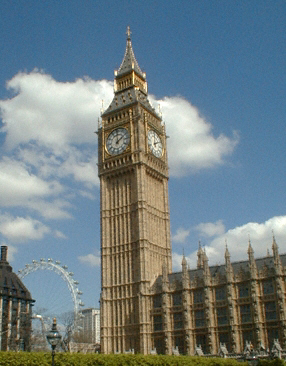
16.01.07 Look
out for updates on this subject
Parliament has lost its appeal against a decision that
it must disclose a breakdown of travel expenses for each one of the UK’s
646 MPs.
The house of commons was today given 30 days to release a breakdown
of expenses by each MP for travel by car, rail and air for the past three
years. It can, however, delay disclosure further by appealing the information
tribunal’s decision to the high court on a point of law.
The information commissioner, Richard Thomas, ruled last year that
the house of commons must meet requests filed under the freedom of information
act (FOIA) for the details.
The commons had refused to disclose the details, citing the exemption
under FOIA relating to personal information.
Its position throughout the case has been that it would be “unfair”
on MPs to disclose such details and so would breach the data protection act.
It said that it gave members of parliament notice in a letter in 2002 of the
information that it would, and has, made public on its own initiative. This
included the total level of annual travel expenses for each MP. It would be
unfair to disclose more than was described in that letter, the Commons claimed.
In one of the most notable “decision notices” issued by
the information commissioner on complaints about how public bodies have responded
to FOIA requests, the regulator rejected that argument.
The commons appealed to the information tribunal, which has endorsed
the commissioner’s approach to the case, agreeing that there should
be less protection for individuals with regard to their “public”,
as distinct from their “private”, lives.
The tribunal said: “The consideration given to the interests
of data subjects who are public officials, where data are processed for a
public function, is no longer first or paramount.
“Their interests are still important, but where data subjects
carry out public functions, hold elective office or spend public funds they
must have the expectation that their public actions will be subject to greater
scrutiny than would be the case in respect of their private lives.
“This principle still applies even where a few aspects of their
private lives are intertwined with their public lives but where the vast majority
of processing of personal data relates to the data subject’s public
life.”
The tribunal’s decision continued: “We find that the legitimate
interests of members of the public outweigh the prejudice to the rights, freedoms
and legitimate interests of MPs. We consider our decision will only result
in a very limited invasion of an MP’s privacy considered in the context
of their public role and the spending of public money.
“In coming to this decision we have noted that the Scottish parliament
has for some years disclosed the detailed travel claims of MSPs supporting
mileage, air travel, car hire and taxis. Also we note that in [one] decision,
the Scottish commissioner went further and ordered the release of the destination
points of taxi journeys of an MSP.”
A client of the FOIA Centre is one of scores of requestors who sought
details under FOIA from the commons on MPs’ travel expenses.
The commons revealed to the tribunal that it had received approximately
167 such requests. It has refused all requests for a more detailed breakdown
on travel expenses, pending the information tribunal’s decision.
FOIA
Centre commentary
As we pointed out when we reported on this case in March last year, public
bodies are all too ready to misinterpret the data protection act to avoid
disclosing “personal information” under FOIA.
They have come to treat section 40 (2) of FOIA, information whose disclosure
would breach the data protection act, as an absolute exemption for all personal
information. This manifests itself in a variety of ways, this case concerning
only one of them.
We can only stress, as we said then, that disclosing personal information
does not necessarily equate to a breach of the data protection act.
The information tribunal has endorsed this view in deciding upon whether
MPs’ travel expenses should be disclosed. It is a clear and useful decision.
Public bodies, which like to play dum, have no excuse to continue regarding
personal information as subject to an absolute exemption under FOIA.
Comment on this article
Commons
told to release MPs’ travel expenses
Headlines

 |
 |
||||||||
 |
 |
||||||||
 |
 |
 |
|||||||
 |
|||||||||
 |
|||||||||